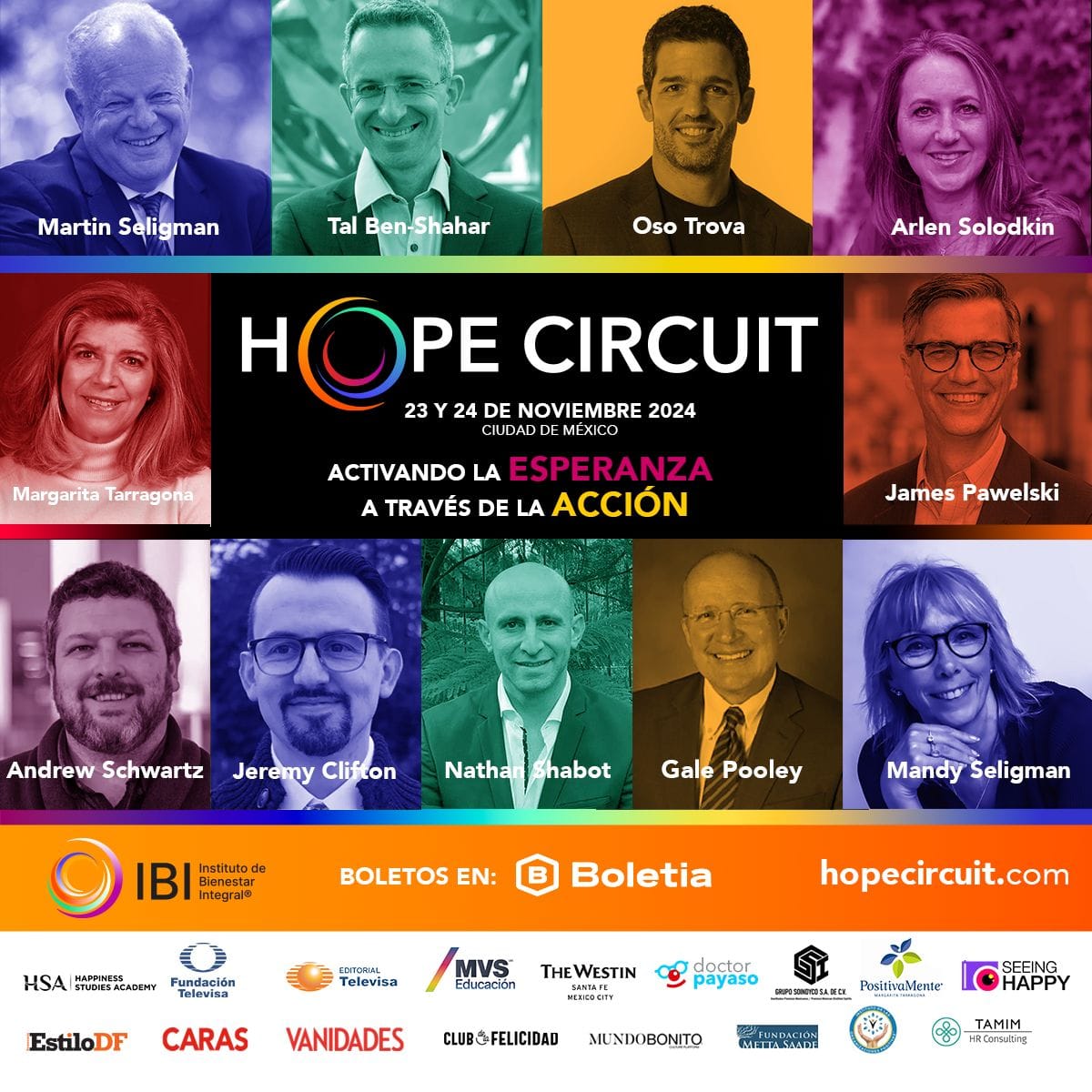Por Arlen Solodkin

En nuestra búsqueda por entender el progreso humano, el concepto de meliorismo a menudo emerge como una luz guía. La palabra "meliorismo" proviene del latín "melior", que significa "mejor". El meliorismo es la creencia de que el mundo puede ser mejorado a través del esfuerzo humano. A diferencia del optimismo inquebrantable, que asume que todo saldrá bien, o el pesimismo, que ve poca esperanza de mejora, el meliorismo encuentra un equilibrio. Reconoce las complejidades de la vida mientras se aferra a la creencia de que podemos tener un impacto positivo.
William James, un prominente filósofo y psicólogo, dijo una vez: “El mayor uso de una vida es gastarla en algo que perdure”. Esta cita resuena profundamente con los principios del meliorismo. Nos recuerda que nuestras acciones hoy pueden contribuir a un mejor mañana, no solo para nosotros, sino para las generaciones futuras.
El meliorismo fomenta un enfoque pragmático hacia el progreso. En lugar de esperar a que el cambio ocurra por sí solo, enfatiza la importancia de dar pasos —por pequeños que sean— hacia la mejora. Esto se puede aplicar a varios aspectos de la vida, incluyendo el desarrollo personal, los problemas sociales y los desafíos ambientales.
Por ejemplo, considera una comunidad que enfrenta altos niveles de contaminación. Un enfoque meliorista implicaría que individuos y grupos trabajen juntos para limpiar su entorno, aboguen por políticas que promuevan la sostenibilidad y conciencien sobre la importancia de un planeta saludable. Se trata de reconocer que, aunque el problema puede parecer abrumador, los esfuerzos colectivos pueden llevar a un cambio significativo.
Uno de los elementos esenciales del meliorismo es la conciencia. Para avanzar, primero debemos entender los desafíos que enfrentamos. Esto implica examinar críticamente el status quo y reconocer las áreas que necesitan mejora. Cuando abordamos los problemas con una mentalidad de conciencia, nos volvemos más receptivos a soluciones innovadoras y perspectivas diversas.
En el mundo actual, problemas como el cambio climático, la injusticia social y la desigualdad económica son preocupaciones apremiantes. El meliorismo nos invita a reconocer estos problemas y asumir la responsabilidad de nuestro papel en su resolución. Al fomentar una mentalidad de mejora continua, podemos cultivar la resiliencia y la adaptabilidad —cualidades vitales para navegar en un mundo en constante cambio.
El meliorismo tiene profundas raíces históricas. Surgió durante la Ilustración, una época en que los pensadores creían en el poder de la razón y la agencia humana. Filósofos como John Dewey y William James contribuyeron significativamente a este discurso, argumentando que el progreso es alcanzable a través de la educación, la reforma social y la acción colectiva.
Este legado filosófico sigue siendo relevante hoy en día. A medida que enfrentamos nuevos desafíos, los principios del meliorismo pueden guiarnos en nuestros esfuerzos por crear un futuro mejor. En lugar de quedar paralizados por el pesimismo o abrumados por la enormidad de los problemas, podemos adoptar una postura proactiva que priorice la mejora y el crecimiento.
Incorporar el meliorismo en nuestra vida diaria no requiere gestos grandiosos. Acciones pequeñas y consistentes pueden llevar a un cambio significativo. Una forma de adoptar esta mentalidad es estableciendo metas realistas. Ya sean personales o profesionales, alcanzar estas metas puede motivarte a avanzar, y celebrar pequeñas victorias en el camino, ayuda a mantener el impulso. También es crucial mantenerse informado; educarte sobre los problemas que te importan y te empodera para contribuir a soluciones.
Involucrarte con otros puede amplificar tus esfuerzos, ya que colaborar con personas o grupos afines mejora el impacto de las acciones individuales. Practicar la reflexión regular sobre tus experiencias y el progreso que has logrado te ayuda a mantenerte enfocado y motivado. Por último, es importante abrazar el fracaso. Reconocer que los contratiempos son una parte natural del viaje te permite utilizarlos como oportunidades para aprender y crecer.
Al mirar hacia el futuro, la importancia del meliorismo no puede ser subestimada. En un mundo que a menudo se siente dividido y caótico, esta filosofía ofrece un camino hacia el compromiso constructivo y la mejora colectiva. Nos alienta a ver los desafíos no como obstáculos insuperables, sino como oportunidades para el crecimiento y la mejora.
Los días 23 y 24 de noviembre en el encuentro internacional Hope Circuit, tendremos el privilegio de escuchar a James Pawelski, líder mundial en psicología positiva, director del Centro de Psicología Positiva (Positive Psychology Center)de la Universidad de Pensilvania y director del Programa de Humanidades y Florecimiento Humano. Su trabajo sobre el meliorismo y el progreso humano se alinea perfectamente con los temas de este sitio. Sus ideas sin duda inspirarán a los asistentes a considerar cómo pueden contribuir a un futuro más esperanzador y progresista.
En conclusión, el meliorismo nos enseña que, aunque no tengamos todas las respuestas podemos aspirar a la mejora a través de la conciencia, la acción y la colaboración. Al adoptar esta mentalidad, podemos crear ondas de cambio positivo que se extienden mucho más allá de nosotros mismos. Como bien dijo William James, el mayor uso de nuestras vidas radica en contribuir a algo que perdure. Aceptemos juntos ese desafío y trabajemos hacia un futuro más brillante para todos.

**SOBRE HORPE CIRCUIT
Hope Circuit es el encuentro internacional que reúne a los líderes más reconocidos en los campos del bienestar integral, la felicidad y el progreso humano; que se llevará a cabo el 23 y 24 de noviembre en el Hotel Westin de Santa Fe, como la primera de otras acciones que buscan crear un futuro más positivo para México. En las próximas publicaciones compartiremos herramientas prácticas y los hallazgos de líderes mundiales que estarán en Hope Circuit, como el Dr. Martin Seligman, considerado uno de los psicólogos más influyentes de nuestros tiempos; el Dr. Tal Ben-Shahar, profesor del curso más popular en la Universidad de Harvar o Andrew Schwartz, director del World Wellbeing Project, con el fin de desafiar el estatus quo y enriquecer a nuestra comunidad para que juntos podamos encontrar soluciones que nos ayuden a construir un futuro de mayor optimismo, empatía y esperanza.

Las opiniones expresadas son responsabilidad de sus autoras y son absolutamente independientes a la postura y línea editorial de Opinión 51.







Comments ()